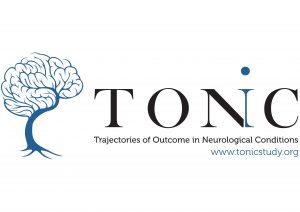Following on from the two talks on genetic testing; the first day of the 24th International Symposium on ALS/MND continued with a number of high quality research talks on topics such as screening for cognitive change and RNA processing.
Miss Hikari Ando (The Walton Centre NHS Foundation Trust) presented her research on Friday 6 December 2013. Following on from a previous talk on quality of life she pitched her talk as ‘What people living with MND thought of quality of life’ and explained that ‘quality of life is not just something of physical decline’.
TONiC
The Trajectories of Outcome in Neurological Conditions (TONiC) study is more than just a mixer. In fact, Dr Ando’s presentation incorporated powerful quotes from people living with MND alongside her results.
TONiC is a national study (part-funded by the MND Association) examining the factors that influence quality of life in people living with MND and other neurological conditions. It is also one of the largest studies on quality of life ever performed in the UK.
Miss Ando explained that 19 people living with MND in the UK took part in the study, which consisted of a semi-structured interview. She presented a summary of five core domains for quality of life in MND, along with quotes:
- Half full approach – “I’ve got a lot to live for really because I do appreciate what’s going on, I do appreciate the beauty of life – small things.” Half empty approach – “There’s no point dwelling on it you have to accentuate the positive all the while.”
- Spirituality – “Quality of life for me is really about knowing that God loves and has a plan even now for me.”
- Locus of control – “I often think to myself, “why me?” … “what’s happened” “how did it happen to me.”
- Interpersonal effect – “They just have a laugh with me, they don’t pity me.”
- Environmental factors – “He died [unclear] but he should have been in a lovely room with paintings on the wall and lovely music been playing.”
- Social factors – “They just have a laugh with me, they don’t pity me.”
She also identified three areas in her talk that were associated with good quality of life, which were again along with some powerful quotes from people living with MND who took part in the survey:
- Enjoyment of life – “General conversation and enjoying little jokes and things that are funny.”
- Significant others – “As long as I’ve got my family that’s all that matters to me”
- Self-identity – “Your family have to watch you becoming a nuisance.”

Speaking to us about her presentation she said: “These factors identified have helped us to better understand the dynamic of perceived quality of life in MND.
“Understanding quality of life is important for patient-centred care, but it is challenging for care providers because of its diversity and complexity.”
“We believe that it is crucial to listen to our patients in order to understand how we can best support them, whilst providing the care they need.”
After you’ve finished reading the symposium articles that interest you, we’d be grateful if you could spare a few minutes to fill in our short online survey on our symposium reporting. Your comments really are useful and allow us to continually improve our symposium reporting https://www.surveymonkey.com/s/CPH8XF6.






Comments are closed.